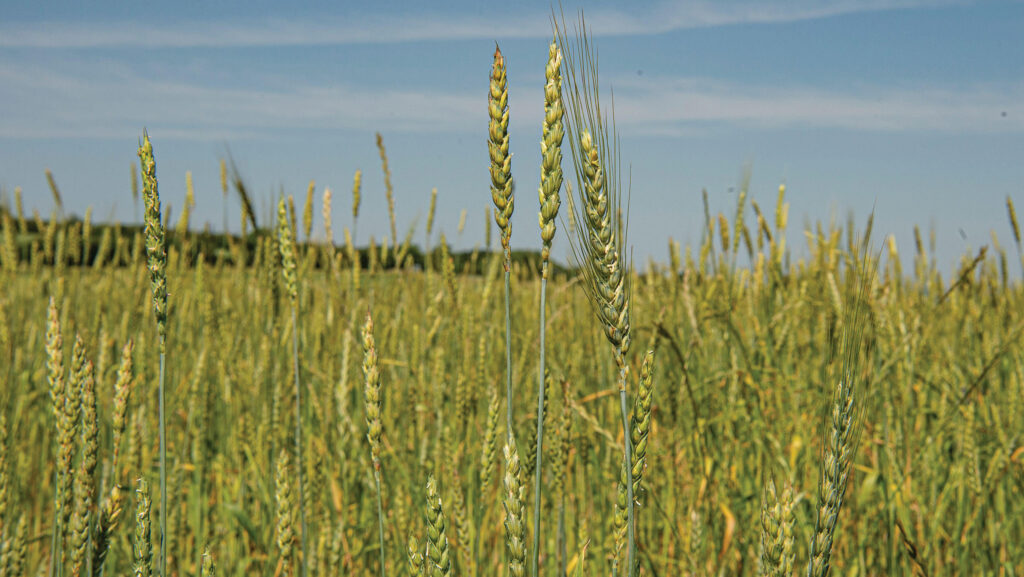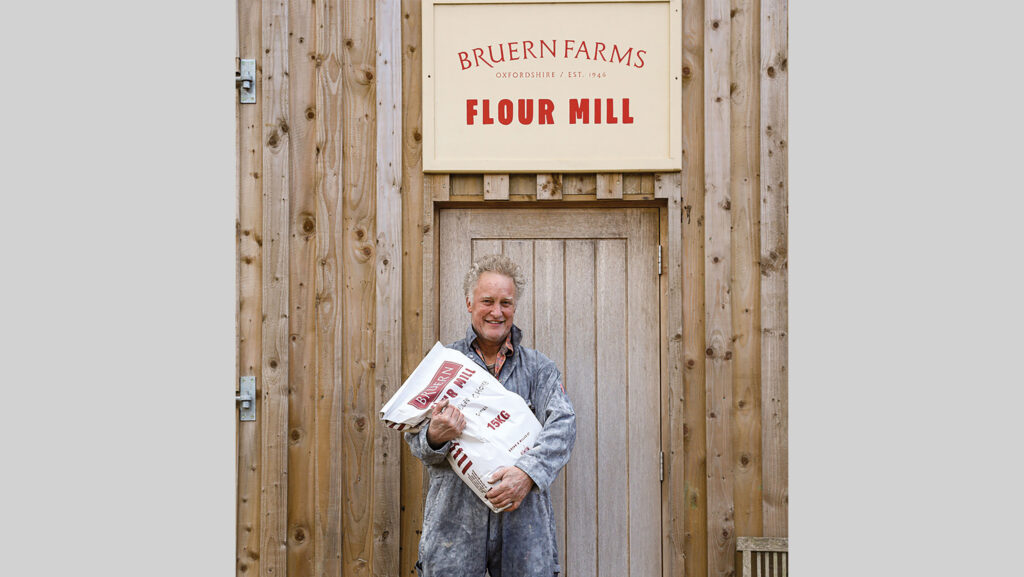Groundswell 2025: Oxfordshire regen farm works with bakery chain
 Red Lammas heritage wheat © Farlap/Alamy Stock Photo
Red Lammas heritage wheat © Farlap/Alamy Stock Photo A loaf of sourdough on sale in Gail’s bakery, and named after the Oxfordshire farm the flour was sourced from, is described by the bakery chain as a celebration of regenerative heritage wheat.
Bruern Farms Sourdough – which retails for £7 for a 1.5kg loaf – came about after grower Henry Astor approached Gail’s to sell the bakery his flour.
Henry already had success in persuading local bakeries to include flour from his heritage wheat in their processes.
See also: Why heritage wheat forms heart of Surrey mixed farm
He was disillusioned with the conventional system, which saw grain from the Cotswolds farm being purchased for the lowest price before travelling many miles to be processed.
So he took the decision to buy and install a mill from New American Stone Mills in 2022.
Once Henry was able to produce his own flour from 16ha of heritage varieties grown at Bruern Farms, he embarked on a marketing mission to tell bakeries about the flour – convinced that it offered better nutrient density.

Henry Astor © Bruern Farms
Protein limits
“Wheat at 10.5% protein would normally be rejected for baking,” he said. “But we found craft bakers that told us the flavour was better and that they could make wonderful bread with it.”
Last summer, Henry came across Gail’s for the first time and contacted the company to gauge its interest.
Representatives came out to the farm, looked at the way he was farming and took some flour away for test baking – with the eventual result being a sourdough loaf.
“We have taken steps to expand the diversity on the farm and we are keen to develop a farm business that is not dependent on government funding,” he explains.
“Building biodiversity and producing nutrient dense food are our aims. Gail’s recognised what we were doing and were keen to be a partner in building a more resilient food.”
For Henry, Gail’s has agreed on a price and a tonnage, which includes taking 10p/kg of flour to put back into the farm’s hedgerows.
“That will help us to keep building biodiversity, improve soil health and be more resilient,” he said.
“Healthy food comes from healthy plants grown in a farming diverse system, which is what we are all about.”
Using heritage grains
Gail’s head of research and development Ros Bado said there are some key considerations for the company when using heritage grains to produce bread, even though unpredictability is a feature of sourdough.
“Normally, we would be looking for a high protein grain with high hydration and easy processing,” she explained.
“As a company using 15,000t of flour to produce 50,000-60,000 loaves/day, consistency is really important.”
The challenge with heritage grain is that it ferments faster and produces more acid, due to higher enzyme activity, so more agility is required in the baking process, she continued.
“It’s quicker, so you get smaller loaves and it is harder to process at scale. Temperature control helps, as that limits acid production.
“There’s also more bran in heritage grain, so water absorption and gas retention is less. It means you get a lower volume loaf.”
Lower protein grain can be used, as the key consideration for Gail’s is protein quality, not quantity, said Ros.
“There are some older varieties such as Emmer and Einkorn that don’t have what we require.”
Baking agility
After four months of using Bruern Farms flour, she stressed they have needed greater agility, adaptability and reactivity, with some upskilling of their bakers required.
“We’ve had to be more cautious and the recipe formulation has changed as we’ve gone along, but having a connection between farmer and baker is good.”
Now they know how to use the flour, Gail’s will be working on getting people to eat it, she added.
“We’re keen to change our part of the food system, reduce our impact and encourage farming practices that are good for the environment.”
Bruern Farms Sourdough
The Gail’s website describes Bruern Farms sourdough as celebrating regenerative heritage wheat and showcasing the wheat grown at the farm.
It also contains emmer, wholemeal spelt and rye flours, for diversity and nutrition.

